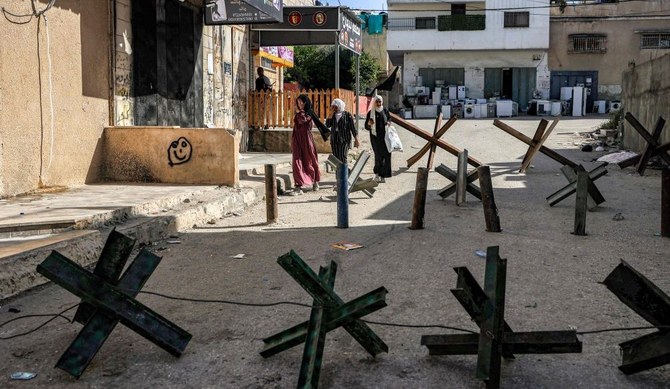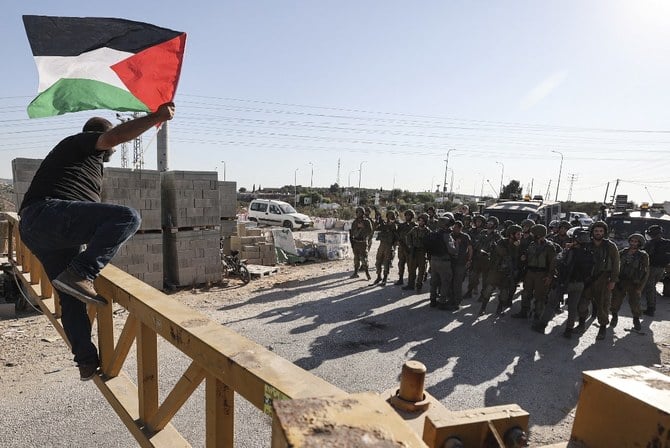
There is nothing new about Israelis and Palestinians clashing at this time of the year, especially when the holy celebrations of Ramadan, Passover and Easter happen to coincide. This tragic turn of events has become something of a ritual, not a very pleasant one, as their disagreements seem more unbridgeable than ever, their leaderships increasingly authoritarian and out of touch with the people, and their societies polarized. While recent events exhibited familiar patterns, they have also presented some new ones, most of them unwelcome, although the fact that these leaders have managed thus far to prevent the violence from escalating into a full-blown war is a source of relative comfort.
Until there is a resolution that goes beyond conflict management and is courageous and thoughtful enough to address the root causes of the conflict between these two peoples, outbreaks of violence are inevitable. Knowing how volatile the situation is, especially in Jerusalem, concerns and warnings of hostilities were issued months in advance, but in recent years it seems that everyone involved would rather deal with the consequences of these confrontations than take the necessary steps and create political and diplomatic mechanisms to avert them before they can break out. Unlike similar developments in the past, this time both sides are testing each other, but are cautious not to provoke the other to overreact. However, for how long this restraint can be maintained is anybody’s guess; there are no guarantees.
One factor that adds to the unpredictability of the situation is the formation of the most far-right government in Israel’s history, which is both intimidating and perplexing for the Palestinians and has wider consequences for the region. On the one hand it is a government that includes ministers calling for expanding the settlements, annexing the occupied West Bank, changing the status quo at Al-Haram Al-Sharif and who are generally hostile to the Palestinians. However, on the other hand, due to its own miscalculation and misjudgment, it is preoccupied with domestic affairs, is deeply divisive and consequently has weakened the society and also its security forces, which might tempt not only Palestinians but also Iran and its regional allies to test its resolve.
For the puzzled, even astonished world, the new Israeli government has embarked on a mission to destroy democracy, splitting the society and also angering many reservist soldiers, who for the first time in the country’s history are refusing to show up for service. This is a noticeable weakness, but Prime Minister Benjamin Netanyahu, instead of taking responsibility, is blaming the hundreds of thousands of protesters who are trying to save their democracy.
For Palestinians, there is a frightening sense of clarity in the sense that this is a government that is not bothered with any pretense of wanting a political settlement to the conflict, nor does it appear to care how the international community perceives it or might react to any provocations by the government itself or the Jewish settlers.
The choice left for many Palestinians — especially in the face of the disarray among their own leadership, much of it emanating from the split between the Palestinian Authority in the West Bank and Hamas in Gaza — is either to return to more active resistance to the occupation or instead to avoid any act that would upset an Israeli government and give it the pretext to use excessive force to suppress such resistance and even annex parts of the West Bank. Needless to say, neither option is attractive, and both will either end in a heavy and disproportionate reaction from Israel, with terrible consequences, or a return to the current and unacceptable situation of living under oppressive occupation.
Yet, confrontations in recent weeks have been localized and limited in duration. Hamas might encourage Muslim worshippers to clash with Israeli security forces, but when the most fanatical of the Jewish messianic-religious far-right groups insist on practicing an ancient ritual of sacrifice for Passover on the Al-Aqsa Mosque compound during Ramadan, there is no need for much encouragement, especially when there is support among the current government for building a third Jewish temple on the site.
I keep hearing from many Israelis, and not necessarily unreasonable ones, that everyone should have equal rights to worship on Temple Mount and Jews should not be discriminated against. There is something naive about this argument, but worryingly it is also insensitive and ignores the wider context. Who would not like to see Jerusalem become a city of peace, a hub of interfaith collaboration and an example for the rest of the world of people of different faiths living in harmony? But this cannot take place while the Israeli occupation continues, the right of Palestinians to self-determination is denied and a group of provocateurs, against the religious ruling of the vast majority of rabbis, are exacerbating an already flammable situation. This situation has been made worse by the disproportionate reaction of Israeli security forces when Muslim worshippers barricaded themselves inside their mosque.
The horrific murder by Palestinian terrorists of a Jewish mother and her two daughters from the settlement of Efrat, like the vehicle ramming — assuming it was deliberate — that left one Italian tourist dead and others injured on the promenade in Tel Aviv, is inexcusable and will hardly improve the lives of Palestinians or end the occupation and the oppression of Palestinian people. However, while Israelis are understandably shocked by these killings, they also need to remember the many Palestinian civilians who are killed every year by Israeli security forces with complete impunity.
One factor that adds to the unpredictability of the situation is the formation of the most far-right government in Israel’s history.
Yossi Mekelberg
What probably surprised Israel more than any other recent development was the barrage of 34 rockets from Lebanon by a Palestinian group that most likely had the green light from Hezbollah. From what we know so far, it seemed to be a localized attempt to make a point about the vulnerability of Israel to attacks from the north, at a time when Israel is attacking Iranian and Hezbollah targets in Syria as a matter of routine. Its rather subdued military response in Lebanon and Gaza showed that Israel was not interested in opening a new front with its nemesis in the north or pursuing a war with Hamas in Gaza.
Passover and Easter are over and soon Ramadan will also conclude, but the underlying causes of the Israeli-Palestinian conflict will remain. No one should be complacent enough to suppose that calm is guaranteed for the next few weeks, but even if this were to be the case, to enjoy any lull in hostilities without looking for a long-term peaceful solution would only be deceptive and short-lived.
Yossi Mekelberg is a professor of international relations and an associate fellow of the MENA Program at Chatham House. He is a regular contributor to the international written and electronic media. Twitter: @YMekelberg












